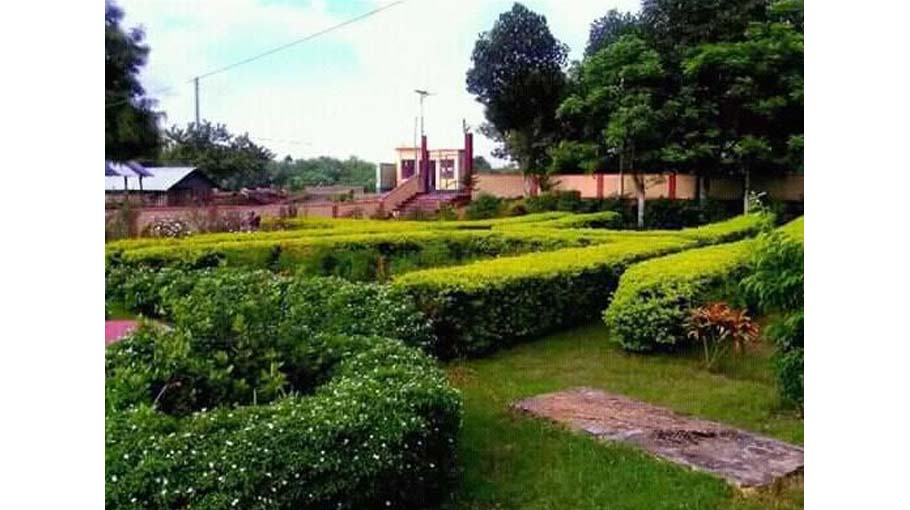Chuadanga, Damurhuda, Alamdanga Free Day today

Chuadanga district town with Sadar upazila, Damurhuda upazila and Alamdanga upazila were freed from the grasp of Pakistan Army on December 7.
After Bangabandhu Sheikh Mujibur Rahman declared the independence of Bangladesh, people, political leaders, MPs, MLA, Bengali officials and then Bangali EPR personnel of Chuadanga kept independence to Chuadanga from March 26 to April 13, 1971.
Pakistani Army captured then EPR camp on April 14, district town on April 15 and other Upazilas on April 16. Chuadanga district was under control of occupation forces from April 16 to December 6, 1971.
On March 27, 1971 then EPR camp of Chuadanga was taken under control by Bengali EPR personnel where Bangladesh National Flag was hoisted. Chuadanga Rail Station via Darshana to India was set up wire to connecting phone as communication started over phone between two countries from March 28.
On March 30, Chuadanga Sechchha Sebok Bahini was formed in the name of `Operation First Leg’ for capturing Kushtia District from the clutches of Pakistani occupation forces under the leadership of Ashabul Hoque Hyava and Major Abu Osman Chowdhury.
Accordingly, Sechchha Sebok Bahini and common people jointly attacked on Pakistani Forces in Kushtia and defeated them. Tajuddin Ahmed and Barrister Amir-ul-Islam were going to India via Chuadanga. At the time they stayed in Chuadanga, met with Ashabul Hoque Hyava, other leaders of Awamileague and expressed opinion-`Chuadanga is the first capital of Bangladesh’.
On April 3 Pakistani Air Force hurled bombs and fired from plane in Chuadanga. Shops, buildings and police stations were damaged at Boro Bazaar areas. On April 14 Pakistani Bahini killed people at Sarajgonj Bazaar, Dingadah Bazaar on way to Chuadanga from Jashore Cantonment. A monument has been built near Mathabhanga Bridge at Boro Bazaar Area in the district town.
Damurhuda upazila of Chuadanga district was freed from Pakistani occupation army on December 7. The Pakistani occupation army personnel captured Damuhuda upazila on April 16. They tortured the men and women and killed thousands of people. Freedom fighters with the help of locals conducted several attack against Pakistani Army during liberation war.
On August 5, 1971 a gun fight occurred between Pakistani army and freedom fighters at village Jogonnathpur-Rotonpur in Damurhuda upazila of the district. At least 8 freedom fighters were killed by the Pakistani army in the battle.
The martyred are Kiamuddin, Hasanzaman, Abul Kashem, Rowshan Ali, Robiul Islam, Alaul Islam Khakon, Afazuddin and Tarek Rahman. Local people buried them at village Jogonnathpur in Damurhuda upazila.
A momentum of the 8 martyred and one building for preserving `Liberation War Documents’ (called as Muktizuddha Sangrah Shala) have been built at the area under the direct initiative of Freedom fighter Solaiman Hoque Joarder Selun, MP of Chuadanga-1 constituency.
Alamdanga Upazila of the district was liberated on December 7. After capturing Chuadanga district town the occupation army took under control the upazila on April 16. On August 13, 1971 a freedom fighter named Khandakar Jamsed Noori Togar was martyred in a gun battle with Pakistani Army at village Sukcha-Bazidpur in Alamdanga upazila.
On November 12, 1971 Mollah Abul Hossain Nannu, Khandakar Ashraful Hoque Ashu and Ansar Ali were martyred a gun fight between freedom fighters and uncivilized Pakistani Army men in Alamdanga upazila town.
Train communication was running between Puradah Junction of Kushtia district and Khulna divisional town during liberation war. When the trains arrived in Alamdanga Rail Station, the members of Pakistani army drugged out men and women, confined them in a room of Water Development Office, after torturing, killed and buried them at Lal Bridge area in the upazila town. This was their regular routine work. The area is called ‘Alamdanga Boddhobhumi.’
The present government has constructed boundary wall and momentum in honor of them in 2012, who have given lives for Bangladesh.
Upazila Muktizaddha Command, District Muktizaddha Command, District Administration, Awami League and social organizations have been chalked out discussion meetings, rallies, cultural functions and placing wreaths in observance of the day.



